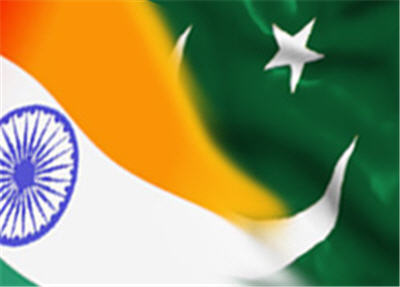
The resumption of dialogue between India and Pakistan is always weighed down by anxiety about outcomes. After the July 26 blasts in Mumbai, New Delhi cut off the composite dialogue process with Islamabad. The foreign secretaries of both countries are now scheduled to meet on Wednesday, February 24th to begin talks again.
The problem is that sustainable peace between the two nuclear states in South Asia is doomed if each has no appetite for flexibility on key issues. New Delhi insists that dialogue should be restricted to terrorism, while Islamabad is looking to tackle a broader range of issues, including Kashmir. The nub of the problem is that India expects Pakistan to provide guarantees against terrorism in the region, while Pakistan says that try as it may, Islamabad cannot possibly provide a guarantee against bombs in India if it cannot guarantee the security of its own Military’s General Headquarters.
If the two can be pushed to stay at the negotiating table, the fundamentals should focus on mutual concerns. On terror, dialogue should lead to the construction of joint mechanisms for intelligence sharing, best practices and optimal outcomes. Intelligence is the first line of defense in terrorist terrain, and we need to bolster our states with a formal architecture for interaction. Cross-border irritants should be flagged on dialogue tables, not on the airwaves.
Second, structured talks on Kashmir will have to re-surface, even if they inch forward. If New Delhi refuses to include Kashmir at a later stage on the formal table, then the dialogue will lose momentum as well as political traction in Pakistan. Peace-making governments will increasingly become hostage to shrill nationalist voices and the project of Pax South Asia will again flounder on the rocks of gratuitous intransigence. Talks on Kashmir will also profit from a back-channel, as well as quiet inclusion of Kashmiri opinion in any dialogue for it to remain credible.
Third, on Afghanistan, Pakistan is only one of the elephants in the room. Islamabad’s fear of Indian encirclement will lighten if international strategies to build a nation out of that failing state succeed. Troop surges will likely tip the scales for negotiating with the Taliban for US-NATO forces, but is unlikely to square a stability and governance circle on its own. International support for a broad-based ethnic mix for Afghanistan is the only way forward if the region is not to lapse into a lawless buffer zone for extremists to build an infrastructure of dominance and pseudo-shariah to terrorize the region with. Islamabad’s cavil about Baloch insurgents finding sanctuary with Indian consulates can find resolution if Indian counterparts can provide transparency. Indian protests about Pakistan sponsoring terrorist attacks on its embassy can be rationally resolved through mutual exchange and dialogue.
Fourth, the widespread Pakistani anxiety about Indian dams on rivers that deplete the Indus downstream can actually be discussed in a rejuvenated permanent water commission between the two countries. Pakistan is dangerously water stressed, and this is one conflict that can snowball out of control. Given that water is not always a renewable resource in South Asia, urgent planning is needed by both countries to plan for conservation that is both sustainable and mutually acceptable.
Shifting any state’s strategic calculus in a conflict is always a challenge. While the rest of the world forges ahead, re-thinking global nuclear stockpiles, South Asia’s two dinosaurs remain wedded to regimes that are based on mutual opacity, while their conventional arms race remains unfettered by nuclear deterrence. Giving China a role in a separate trilateral commission for nuclear and other talks can help ease that neuralgia.
Finally, India’s military focus, in terms of brigades and hardware, is still Pakistan. That forces the military here to keep troop strength balanced when all resources are needed on another, dispersed battlefield. Here, for once,history can point the way. In the 1960s, Islamabad had withdrawn its forces quietly when New Delhi was facing down China in Aksai Chin, as all responsible accounts from Washington will testify. If one is looking for a game-changer, this will be it. For Pakistan, the potential theater of conflict will shift where needed, and threat perceptions will slowly start to shift closer to our real ground zero at home. The trust deficit will move down multiple notches and a structured, monitored dialogue can cash in on the space afforded by such a seminal act of courage and statesmanship.
The two countries need a grand strategic bargain for South Asia. Because without one, dialogue will go round in round in vilified circles, becoming a low-intensity space for conflict-prevention. We need to go beyond crisis-management. But for all that to happen, we need to give composite dialogue a sustainable chance.
Sherry Rehman is former Minister of Information and Broadcasting and Ranking Member of Pakistan Parliament’s National Security Committee.
Image: stock-india-pakistan.jpg
